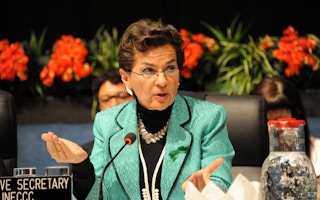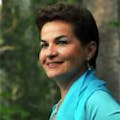The #MeToo movement has been yet another wake-up call about the fate of so many women who have been disrespected and abused, emotionally or physically, for way too long. It is a reminder of the fact that too many girls still have no access to education and too many of them have no say regarding whom they marry, when they marry, or how that marriage is lived.
To continue reading, subscribe to Eco‑Business.
There's something for everyone. We offer a range of subscription plans.
- Access our stories and receive our Insights Weekly newsletter with the free EB Member plan.
- Unlock unlimited access to our content and archive with EB Circle.
- Publish your content with EB Premium.
Too many women are paid less than their male equivalents, and too many women are held down on the professional ladder having little or no access to positions of decision-making.
All of the above is true and excruciatingly painful especially in 2018, by which time we should have evolved way beyond this flagrant lack of equality. But I would also like to think that the #MeToo hashtag will progressively stand for the women who are successfully claiming their rights as equal citizens of this world, for the women who are assuming the leadership we so urgently need.
Only with this leadership will we be able to tackle the deep-rooted gender inequality that persists worldwide; only with this leadership will we achieve women’s equality and empowerment boldly set out in the fifth Sustainable Development Goal (SDG) and intertwined throughout Agenda 2030.
Climate change remains one of the greatest threats to achieving sustainable development, and its effects often fall hardest on women. More women than men are killed by natural disasters, and women and girls are often last to receive humanitarian assistance in the event of climate shocks. Sourcing water, fuel and wood – often the responsibility of women – is a greater struggle both during extreme weather events and with more incremental climatic changes.
“
There is not one woman alive who does not work for a better quality of life for her children.
Boundless energy and unwavering spirit
Countering this reality is the gritty determination, boundless energy and unwavering spirit of women across the world whose knowledge, skills and leadership is being harnessed in delivering solutions. Climate change is one area in which women have decisively contributed to the progress we are making.
I have no doubt that the Paris Agreement was achieved because of the untiring efforts of thousands of women around the world. An extremely short list includes Achala Abeysinghe, Alicia Barcena, Amina Mohammed, Anne Hidalgo, Archbishop Antje Jackelen, Barbara Hendricks, Dessima Williams, Farhana Yamin, Gro Harlem Brundtland, Helen Clark, Hilda Heine, Hindou Oumarou Ibrahim, Jennifer Morgan, Nawal Al Hosany, Ngozi Iweala, Nozipho Mxakato-Diseko, Laurence Tubiana, Mary Robinson, May Boeve, Mindy Lubber, Naoko Ishii, Rachel Kyte and Sharan Burrow, but those are only a very few who were in the limelight.
Beyond the limelight, on the front lines of the climate challenge, were thousands of women whose names we do not know, but who have displayed and will continue to pursue heroic efforts to feed and care for their families in a drastically changing environment.
These are the unsung heroines of this century. These are the women upon whose brave shoulders lie the realities of food, water, health, education, girls’ empowerment. These are the women who are sowing the seeds for a different tomorrow.
There is not one woman alive who does not work for a better quality of life for her children. There is not one woman who even if she has not read the list of the 17 SDGs, does not act as a steward for her children and their children.
For those women, for all women, may we use the #MeToo hashtag to acknowledge the pain of the unfairly treated and the victims, but also to announce our collective determination to a better future.
May we shout out: #MeToo I am taking a stand. #MeToo I am claiming my leadership. #MeToo I am leading the way.
Christiana Figueres is an internationally recognised leader on global climate change. She was executive secretary of the United Nations Framework Convention on Climate Change (UNFCCC) 2010-16. She has promoted sustainable development for many years, and gave IIED’s Barbara Ward Lecture in 2012.
This post was originally published from the IIED blog.











